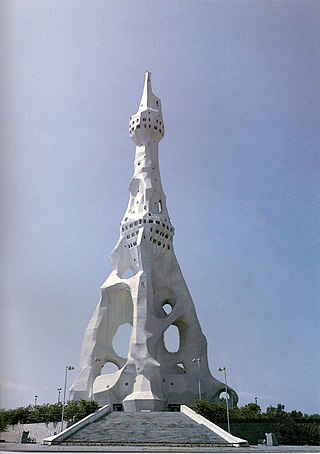Academic career
Karel Dobbelaere was born in Nieuwpoort in Belgium on 16 September 1933. He studied at the Katholieke Universiteit (Catholic University) in Leuven, where he received his doctorate in Social Sciences in 1966. He was appointed a professor at Katholieke Universiteit in 1968. He has done important work in the area of the place of religion in the social fabric, and how secularization of religious roles in public institutions affects both society and religion. He has done fieldwork with Bryan R. Wilson in researching new religious movements and sects. He also contributed for many years on the Social Sciences committee in Belgium's National Fund for Scientific Research. [2]
His teaching focus was sociology and the sociology of religion. His research fields have been in the effects of religious participation and in new religious movements and sects. [1]
He is a member of both the Academia Europaea and the Royal Flemish Academy of Belgium for Science and the Arts. He also has held visiting professorships at various institutions and universities worldwide. He has authored, coauthored and edited over 200 books, articles and studies. [3]
Among his published works are the books Secularization: An Analysis at Three Levels (P.I.E.—Peter Lang, 2002), A Time to Chant (Clarendon, 1994) and Secularization: A Multidimensional Concept (Sage, 1982). [4]
Theory of secularization
Dobbelaere is known for his defense of the classic theory of secularization and has been criticized as such. In fact, however, Dobbelaere's theory of secularization argues that the phenomenon should be studied at three different levels. He calls them "macro-secularization," "meso-secularization," and "micro-secularization."
The "macro-secularization" refers to the decreasing influence of religion on society. Dobbelaere believes there is little doubt that social and political choices are less and less influenced by religion, at least in Western societies, and notes that most sociologists argue with him on this point.
The "micro-secularization" refers to the sphere of private beliefs. Contrary to other theorists of secularization, Dobbelaere observes that religion does survive at the "de-institutionalized" level of private beliefs and practices. Here, again, he believes that most sociologists of religion would agree with him. [5]
Dobbelaere is conscious that the most controversial part of its theory concerns what he calls "meso-secularization," by which he means the decline of the organizational level of religion, measured by several indicators, among them church attendance and donations to institutional religion. [6] Dobbelaere argues that religious organizations and institutions are generally declining in the modern world, while his critics claim that this form of secularization is typical of Western Europe (and perhaps Canada and Australia/New Zealand) only, but not of the United States, nor of Latin America, Asia and Africa. [7]

Nichiren Buddhism, also known as Hokkeshū is a branch of Mahayana Buddhism based on the teachings of the 13th-century Japanese Buddhist priest Nichiren (1222–1282) and is one of the Kamakura period schools. Its teachings derive from some 300–400 extant letters and treatises either authored by or attributed to Nichiren.

Sociology of religion is the study of the beliefs, practices and organizational forms of religion using the tools and methods of the discipline of sociology. This objective investigation may include the use both of quantitative methods and of qualitative approaches.

The Catholic University of Leuven or Louvain was founded in 1834 in Mechelen as the Catholic University of Belgium, and moved its seat to the town of Leuven in 1835, changing its name to Catholic University of Leuven. In 1968, it was split into two universities, the Katholieke Universiteit Leuven and the Université catholique de Louvain, following tensions between the Dutch and French-speaking student bodies.

Soka Gakkai is a Japanese Buddhist religious movement based on the teachings of the 13th-century Japanese priest Nichiren as taught by its first three presidents Tsunesaburō Makiguchi, Jōsei Toda, and Daisaku Ikeda. It is the largest of the Japanese new religions and claims the largest membership among Nichiren Buddhist groups. The organization bases its teachings on Nichiren's interpretation of the Lotus Sutra and places chanting Nam Myōhō Renge Kyō at the center of devotional practice. The organization promotes its goals as supporting "peace, culture, and education".
In sociology, secularization is a multilayered concept that generally denotes "a transition from a religious to a more worldly level." Most versions of secularization do not lead to atheism, irreligion, nor are they automatically anti-thetical to religion. Secularization has different connotations such as implying differentiation of secular from religious domains, the marginalization of religion in those domains, or it may also entail the transformation of religion as a result of its recharacterization.

The Université catholique de Louvain is Belgium's largest French-speaking university. It is located in Louvain-la-Neuve, which was expressly built to house the university, and Brussels, Charleroi, Mons, Tournai and Namur. Since September 2018, the university has used the branding UCLouvain, replacing the acronym UCL, following a merger with Saint-Louis University, Brussels.

Philippe Van Parijs is a Belgian political philosopher and political economist, best known as a proponent and main defender of the concept of an unconditional basic income and for the first systematic treatment of linguistic justice.
Bryan Ronald Wilson, was Reader Emeritus in Sociology at the University of Oxford and President of the International Society for the Sociology of Religion (1971–75). He became a Fellow of All Souls College, Oxford in 1963.

Japanese new religions are new religious movements established in Japan. In Japanese, they are called shinshūkyō (新宗教) or shinkō shūkyō (新興宗教). Japanese scholars classify all religious organizations founded since the middle of the 19th century as "new religions"; thus, the term refers to a great diversity and number of organizations. Most came into being in the mid-to-late twentieth century and are influenced by much older traditional religions including Buddhism and Shinto. Foreign influences include Christianity, the Bible and the writings of Nostradamus.

Soka Gakkai International (SGI) is an international Nichiren Buddhist organisation founded in 1975 by Daisaku Ikeda, as an umbrella organization of Soka Gakkai, which claims approximately 12 million adherents in 192 countries and territories as of 2017, more than 1.5 million of whom resided outside of Japan as of 2012. It characterizes itself as a support network for practitioners of Nichiren Buddhism and a global Buddhist movement for "peace, education, and cultural exchange."
James Arthur Beckford was a British sociologist of religion. He was professor emeritus of sociology at the University of Warwick and a Fellow of the British Academy. In 1988/1989, he served as president of the Association for the Sociology of Religion, and from 1999 to 2003, as the president of the International Society for the Sociology of Religion.
The International Society for the Sociology of Religion (ISSR), also known as the Société Internationale de Sociologie des Religions (SISR), arose in 1989 from the International Conference on Sociology of Religion, founded in 1948. It is a bilingual (French/English) organization, which plays an important role in fostering international contacts between sociologists of religion, mainly through biennial conferences held in various countries. It publishes papers from these conferences as special issues of the journal Social Compass, on whose editorial board the association's past president plays a role. It currently has over 500 members from 47 countries and all the habitable continents. Past presidents of the society include James A. Beckford, Karel Dobbelaere, Bryan R. Wilson, Enzo Pace, and Jean-Paul Willaime. Its current president is Peter Beyer, from the University of Ottawa, Canada.

KU Leuven is a Catholic research university in the city of Leuven, Belgium. It conducts teaching, research, and services in computer science, engineering, natural sciences, theology, humanities, medicine, law, canon law, business, and social sciences.
Bart Cambré is a Belgian organizational theorist, Associate Professor of Business Research Methods and Research director at the Antwerp Management School, and consultant, known for his work on voluntary and temporary organizations.
Zadankai are community-based conventicles which serve as the grassroots activity of Soka Gakkai members. They are the means for propagation and deepening faith. Soka Gakkai literature also describes them as being sites for neighborhood revitalization.
Michael T. Aiken is a sociologist and professor who served as the 6th chancellor at the University of Illinois at Urbana-Champaign and provost at the University of Pennsylvania.
Grace Riestra Claire Davie is a British sociologist who serves as professor emeritus of sociology at the University of Exeter. She is the author of the book Religion in Britain Since 1945: Believing Without Belonging.

In sociology, desecularization is the proliferation or growth of religion, usually after a period of prior secularization. The theory of desecularization is reactionary to the older theory known as the Secularization Thesis, which posited a gradual decline of religion to a point of extinction. In the last few decades, scholars have pointed to continued church attendance in Western countries, the rise in religious fundamentalism, and the prevalence of religious conflict as evidence of the continued relevance of religion in the modern world. A former proponent of the earlier secularization thesis, Peter L. Berger, has now expressed his support for the newer theory, stating that the world today "is as furiously religious as it ever was". The skeptic Michael Shermer wrote: "At the beginning of the twentieth century social scientists predicted that belief in God would decrease by the end of the century because of the secularization of society. In fact… the opposite has occurred… Never in history have so many, and such a high percentage of the population believed in God. Not only is God not dead, as Nietzsche proclaimed, but he has never been more alive."

The Catholic University of Leuven was one of Belgium's major universities. It split along linguistic lines after a period of civil unrest in 1967–68 commonly known as the Leuven Affair in French and Flemish Leuven, based on a contemporary slogan, in Dutch. The crisis shook Belgian politics and led to the fall of the government of Paul Vanden Boeynants. It marked an escalation of the linguistic tension in Belgium after World War II and had lasting consequences for other bilingual institutions in Belgium within higher education and politics alike. In 1970 the first of several state reforms occurred, marking the start of Belgium's transition to a federal state.










